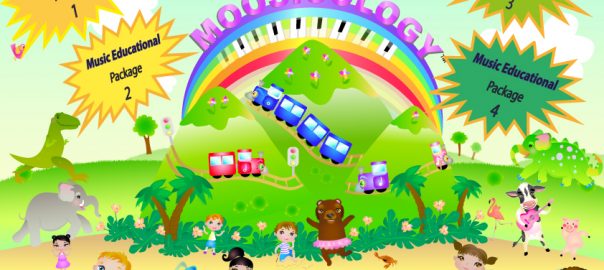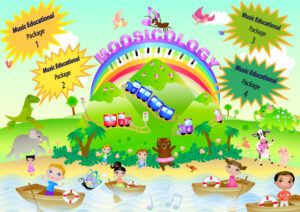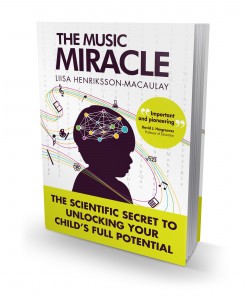There is a growing body of research suggesting that exposure to music in the early years can have positive effects on brain development in various ways. Here are some key findings from scientific studies:
- Cognitive Development:
- Memory and Attention: Engaging with music can enhance memory and attention skills in children. For example, learning and remembering songs or musical patterns involve cognitive processes that can transfer to other areas of memory and attention.
- Pattern Recognition: Musical activities often involve recognizing patterns, which can contribute to the development of early mathematical and logical thinking.
- Language Development:
- Phonological Skills: Exposure to music, especially through singing and rhythmic activities, can contribute to the development of phonological awareness—the ability to recognize and manipulate sounds in language. This is a crucial skill for early language development.
- Vocabulary Building: Songs often introduce new vocabulary and help children learn the sounds and meanings of words.
- Social and Emotional Development:
- Social Bonding: Music activities, such as group singing or playing instruments, can foster social bonding and cooperation among children. These interactions contribute to the development of social skills.
- Emotional Expression: Music provides a means for children to express and regulate their emotions. Singing, dancing, and playing instruments can be outlets for emotional expression and creativity.
- Motor Skills:
- Gross and Fine Motor Skills: Activities involving movement to music, such as dancing or playing instruments, can enhance both gross and fine motor skills in young children. This can contribute to overall physical development.
- Neurological Benefits:
- Brain Plasticity: Exposure to music has been linked to changes in brain structure and function. Musical experiences may enhance neural plasticity—the brain’s ability to adapt and reorganize itself in response to new stimuli and experiences.
- Auditory Processing: Musical training may positively impact auditory processing skills, including the ability to differentiate between different sounds and tones.
- Executive Functions:
- Executive Function Skills: Musical activities often require planning, organizing, and executing sequences of actions. Engaging in such activities can contribute to the development of executive function skills, including working memory and cognitive flexibility.
- Emphasis on Early Childhood:
- Many studies emphasize the importance of introducing music at an early age when the brain is particularly sensitive to environmental stimuli and experiences.
It’s important to note that the benefits of early years music are often intertwined with the quality and nature of the musical experiences provided. Positive, engaging, and interactive musical activities tend to yield more significant developmental benefits. Additionally, individual responses to music can vary, and not all children may respond in the same way.
Parents, caregivers, and educators can play a crucial role in promoting positive musical experiences for children by incorporating music into daily routines, providing access to a variety of musical genres, and encouraging active participation in musical activities.













